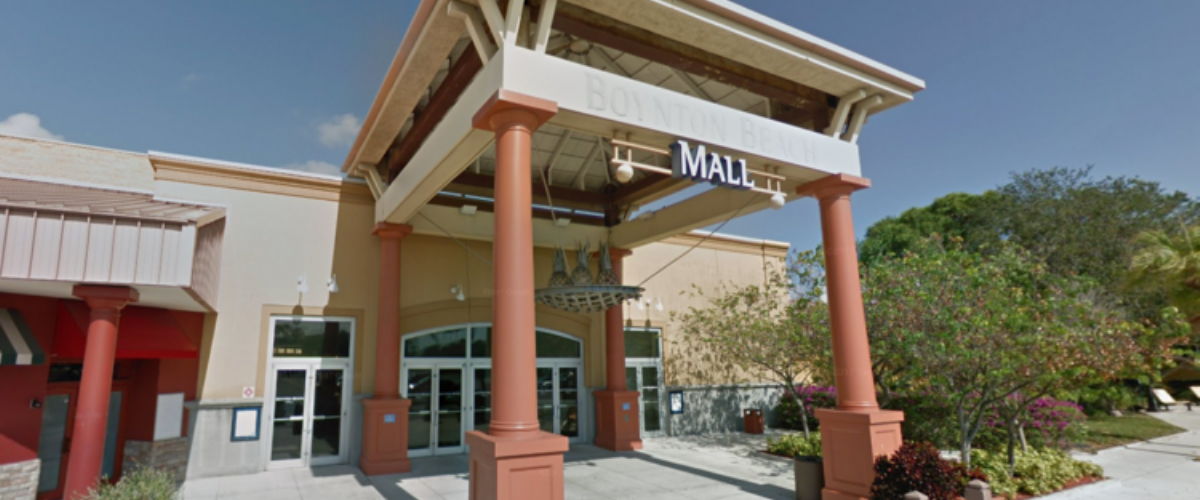What is going to happen to America’s dead malls? That’s a million-dollar question plaguing retailers and real estate developers.
With a report circulating earlier this month that the biggest U.S. mall owner Simon Property Group has been in talks with Amazon to convert some shuttered Sears and J.C. Penney department stores into fulfillment centers, many industry analysts have been pontificating on the future of malls as logistics hubs.
The consensus seems to be that turning old retail space into new warehouses might not be so easy, even though it might seem like a logical solution. Demand for logistics buildings is skyrocketing as e-commerce sales balloon. But the hurdles include the need to have properties rezoned, which could be met with pushback from local municipalities.
“Just because retail space has gone vacant or remained fallow does not mean that it is automatically a good candidate for repurposing into industrial space,” the head of Moody’s Analytics commercial real estate economics division, Victor Calanog, said in a report just released. “One cannot simply build industrial buildings in areas zoned for commercial use. Often, that requires rezoning areas — a long and tedious process with a low probability of success. State and local governments typically tax industrial properties at anywhere from half to two-thirds the rate of commercial properties, so municipalities have little incentive to rezone areas from commercial to industrial use, as they will collect less tax revenues.”
Demand for various commercial real estate asset types is expected to shift noticeably because of the coronavirus pandemic, with more people now working from home, flocking to the suburbs for space and buying online things they used to browse for in stores.
According to data pulled by Moody’s Analytics REIS, apartment development in the U.S. is expected to be down 15.6% in a post-Covid-19 world. Office development is set to drop 10%, it said, while retail falls 15.7%. Industrial development, meantime, is expected to pick up 3.6%.
The firm did find five markets where it said it would make the most sense to covert vacant retail space into warehouse space, based on where retail has been underperforming and where warehouse demand is hot. Those are: Central New Jersey, Northern New Jersey, Long Island, Memphis and Detroit.
But shopping malls are likely going to be shuttering in suburbs all across the country, as store closures grow in number and landlords capitulate. Another new report out this week from Coresight Research estimates 25% of America’s roughly 1,000 malls will close over the next three to five years, with the pandemic accelerating a demise that was already underway before the new virus emerged.
The malls most at risk of going dark are classified as so-called B-, C- and D-rated malls, meaning they bring in fewer sales per square foot than an A mall. An A++ mall could bring in as much as $1,000 in sales per square foot, for example, while a C+ mall does about $320. There are roughly 380 C- and D-rated malls in the U.S., according to an analysis by the commercial real estate firm Green Street Advisors. It has said malls rated C and below “are not viable retail centers long term.”
CBL & Associates, a Tennessee-based mall owner that has a number of B- and C-rated malls in its portfolio, has said it plans to file for bankruptcy by Oct. 1, highlighting just how much pressure these landlords are facing. Even high-end malls are under pressure, though. No one is really immune. An upscale mall owner in Miami, Bal Harbour Shops, is currently moving to evict the luxury department store chain Saks Fifth Avenue for not paying rent since mid-March. It owes Bal Harbour roughly $1.9 million, according to court documents.
“Despite being given months to honor its past due rental obligations and despite Saks’ impressive post-COVID sales at Bal Harbour Shops, Saks steadfastly refused to make any effort to pay any part of its rent,” Bal Harbour Shops President and Chief Executive Matthew Whitman Lazenby said in a statement. “Bal Harbour Shops has worked tirelessly to ensure our business and our tenants can survive and thrive in this environment. Regrettably, this injudicious behavior has left us with no other option than to terminate the Saks lease and sue to evict Saks from Bal Harbour Shops.”
A representative from Hudson’s Bay-owned Saks was not immediately available to comment.
About 90% of occupants in U.S. malls are either experiential tenants like movie theaters, or department store chains and apparel retailers, according to the Coresight analysis. This makes malls the most vulnerable type of shopping centers to the Covid-19 impact, it said, compared with other properties like strip centers that have grocery stores and outlet centers that offer consumers bargains.
During the pandemic, movie theaters and clothing shops have faced long windows of being closed, while consumers could still flock to strip centers for food, cleaning products and other essentials. In some states, such as New York and California, movie theaters remain closed to this day. And so with minimal revenue coming in, these are the businesses that are most likely requesting rent reductions, or not paying rent at all.
Mall developers had up until now been courting entertainment companies like Dave & Buster’s and iFly indoor skydiving, and restaurants like Cheesecake Factory, to lessen their dependence on shrinking retailers. But those businesses have also not fared well in an age of social distancing.
So, if not warehouses and entertainment complexes, analysts have pondered other potential use cases for so-called dead malls: Churches, medical facilities, office spaces and even apartment complexes.
But even office space is a risky bet now, as the working-from-home trend could become permanent for some. Workers in JPMorgan Chase’s corporate and investment bank, for example, will cycle between days spent at the office and at home, keeping the ability to work remotely on a part-time basis. The world’s biggest Wall Street bank by revenue has said it could shutter backup trading floors located outside New York and London as a result of the move.
The outdoor retailer REI is also looking to sell its recently completed corporate campus in suburban Seattle, shifting instead to more satellite offices, as a result of the pandemic.
“Unfortunately, this whole Covid thing has thrown the experiential pitch out the window,” Moody’s Calanog said in a phone interview. “Until we resolve this pandemic, I suspect we are going to be in a holding pattern with hollow retail space. Then we will see what the most viable format is.”
View the CNBC news video ‘How Shrinking the American Mall Will Impact Local Tax Revenue‘ below.
Source: CNBC

